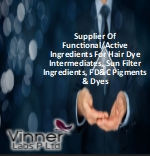Various manufacturers of cosmetic and personal care products including skin care products are keen to protect their researched and novel formulations by obtaining patents. However, only a few products have patented ingredients while the majority of skincare and cosmetic products have off-patent cosmetic ingredients. Patents come within the domain of manufacturers of the products and consumers should in no way think about it except for ascertaining the effectiveness of the active ingredients.
Patenting cosmetics is nothing new because most reputed brands like Victoria’s Secret and Urban Decay hold several patents for their products. Nevertheless, there’s always some confusion about which ingredients can be patented and whether it is possible to obtain a patent for herbal or natural formulas. Patents help manufacturers generate huge mileage from the unique products they own that multiplies their profits exponentially.
What are patented cosmetic ingredients?
A patent confers ownership rights of any cosmetic product to the patent holder but it is not possible to patent any ingredient. Usually, you cannot obtain a patent for active cosmetic ingredients. It’s applicable for some product formula only that includes the active ingredient. However, you can obtain a patent for some novel and newly discovered active ingredient which you can prove to be your invention, which is one of its kind. Even when you are seeking a patent for some cosmetic formulation or a mixture of ingredients, you must prove that the formula does not currently exist and there is no patent for it.
Criteria for obtaining a patent for skin care and cosmetic formulations
You can apply for a patent for some cosmetic formulation that contains several ingredients including active and non-active ingredients. The formulation must be exclusive in the sense that there is no existing patent for it. However, the formula must have some specialty and be far from being obvious, which means you cannot reinvent the wheel and file for a patent. For example, if a shampoo formulation contains a cleansing agent, water, and a basic moisturizing agent it likely does not merit a patent as it is obvious from the viewpoint of the common man. To obtain a patent for a product formulation you must prove its usefulness and establish how much beneficial it would be for consumers.
All product formulations beyond the list of patent products are off-patent cosmetic ingredients. Products that have patented formulations are quite costly but also have higher safety and efficacy.
